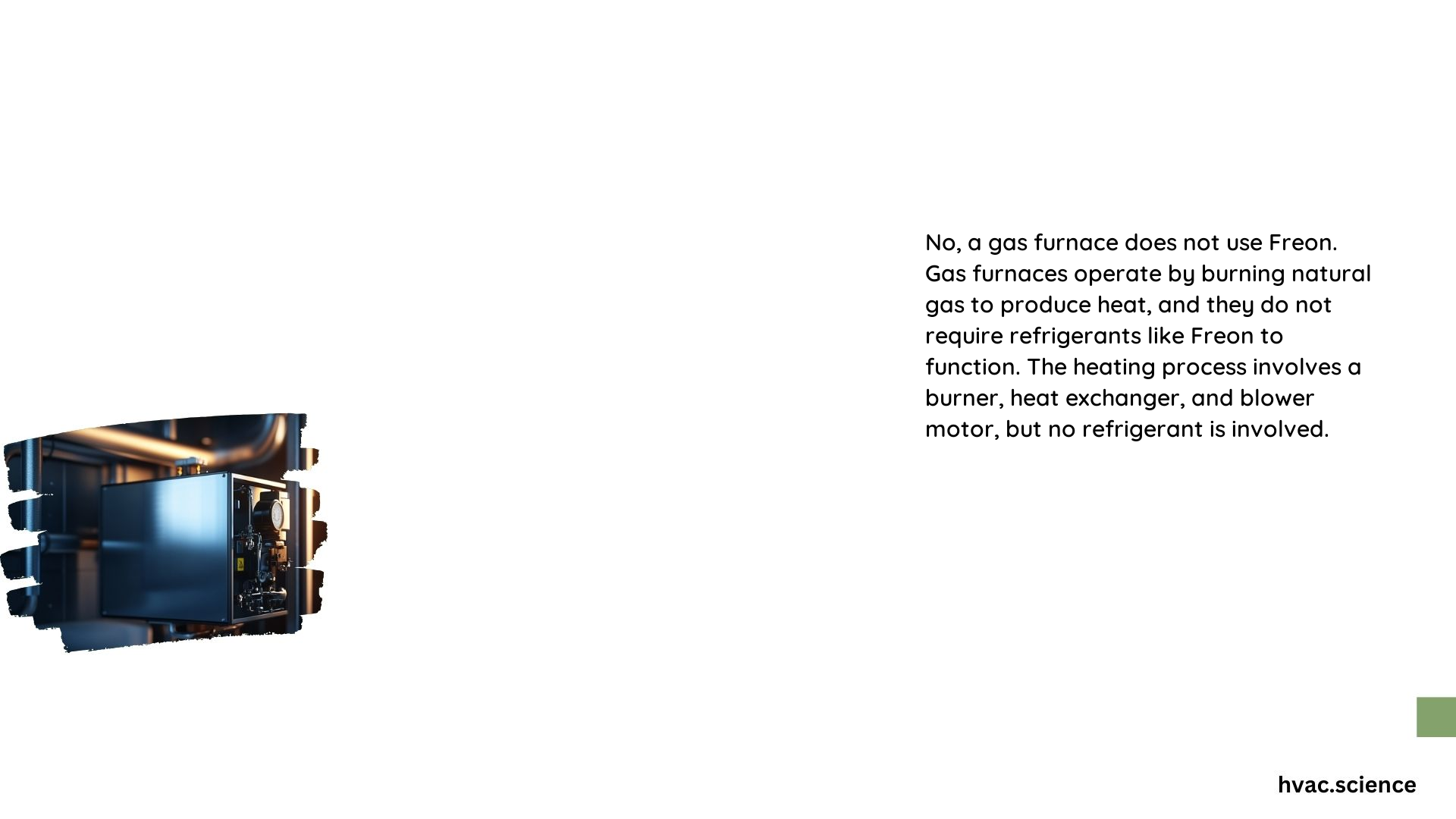Gas furnaces do not use Freon to operate. Freon, also known as R-22 refrigerant, is a chemical compound used in air conditioning systems and heat pumps to facilitate the cooling and heating process. Gas furnaces, on the other hand, generate heat through the combustion of fuel, typically natural gas or propane, and do not require refrigerants like Freon.
Can Gas Furnaces Leak Freon?
Gas furnaces cannot leak Freon because they do not use Freon in their operation. The components of a gas furnace include a burner, heat exchanger, inducer motor, safety controls, and a blower motor. These components work together to burn fuel and distribute the resulting heat throughout the home, without any involvement of refrigerants.
What are the Components of a Gas Furnace?

- Burner: Combines gas and air to produce a flame.
- Heat Exchanger: Transfers heat from the combustion gases to the air.
- Inducer Motor: Removes toxic fumes from the combustion process.
- Safety Controls: Ensure safe operation by monitoring various parameters.
- Blower Motor: Circulates the heated air throughout the home.
How Does a Gas Furnace Differ from Systems Using Freon?
Heat Pumps and Air Conditioners:
– Use refrigerants like Freon (R-22) or newer alternatives like R-410A to transfer heat.
– Include components such as compressors, evaporator and condenser coils, and expansion valves.
Operational Process:
– Gas furnaces burn fuel to generate heat.
– Heat pumps and air conditioners use the refrigeration cycle to transfer heat from one location to another.
How Does a Gas Furnace Operate?
- Combustion: Fuel (gas) is burned in the burner to produce heat.
- Heat Transfer: The heat exchanger transfers this heat to the air.
- Air Circulation: The blower motor circulates the heated air through the home.
- Venting: The inducer motor ensures that toxic combustion byproducts are vented outside.
What Maintenance is Required for Gas Furnaces?
- Regular Filter Changes: Ensure the furnace filter is clean to maintain airflow and efficiency.
- Annual Inspections: Check for proper combustion, venting, and safety control function.
- Repair Leaks: Address any leaks in the fuel lines or heat exchanger, but these are unrelated to refrigerant leaks.
